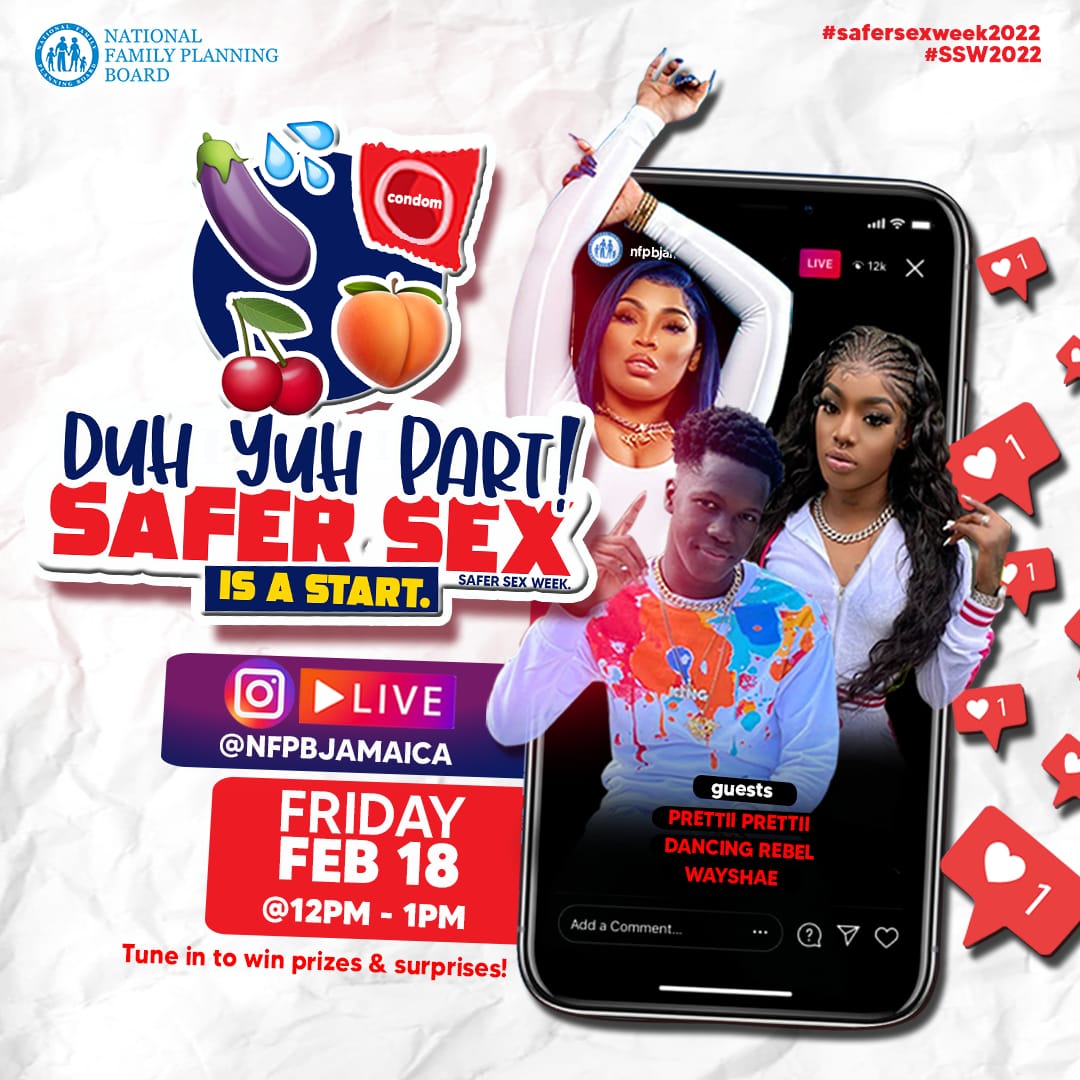NFPB Stages Safer Sex Instagram Live For Youngsters
By: , February 18, 2022The Full Story
The National Family Planning Board (NFPB) is inviting adolescents and young people, ages 16 to 24, to participate in a Safer Sex Week Instagram Live session on Friday, February 18.
The event is focused on bringing awareness to the issues surrounding adolescent sexual reproductive health and will seek to dispel myths and provide information about safe spaces.
It will also address issues such as gender-based violence, forming healthy relationships and the impact of social media on self-esteem and forming relationships.
Although the event will be targeting the adolescent and youth population, it will be open to the public. Interested persons can join by logging on to the NFPB Instagram page @nfpbjamaica at noon.
The session is the culmination of a week of activities undertaken by the NFPB in observance of Safer Sex Week from February 14 to 18 under the theme ‘Duh Yuh Part, Safer Sex is a Start’.
Speaking in an interview with JIS News, Behaviour Change Coordinator at the NFPB, Nickeisha Barnes, said that the entity has been spreading its message for the week through radio and television interviews.
“We also used the opportunity to have a soft launch of the youth arm of our counselling services,” she said.
“We are looking at how we provide a safe space that allows our adolescents and youth to access sexual reproductive health information as well as to provide them with services such as HIV testing, counselling and family planning services, and the administration of contraceptives,” she noted.
Ms. Barnes said that the NFPB also staged social media-driven competitions during the week for adolescent and youth followers and provided incentives such as data credit to support learning and other activities online.
She noted that a tablet will be gifted to the most engaging follower on the NFPB platforms.
HIV testing services were also provided to adolescents and youth across the island during the week.
Ms. Branes told JIS News that the Regional Health Authorities and civil society partners contributed to Safer Sex Week by conducting their own activities, much of which are featured on their social media platforms.


